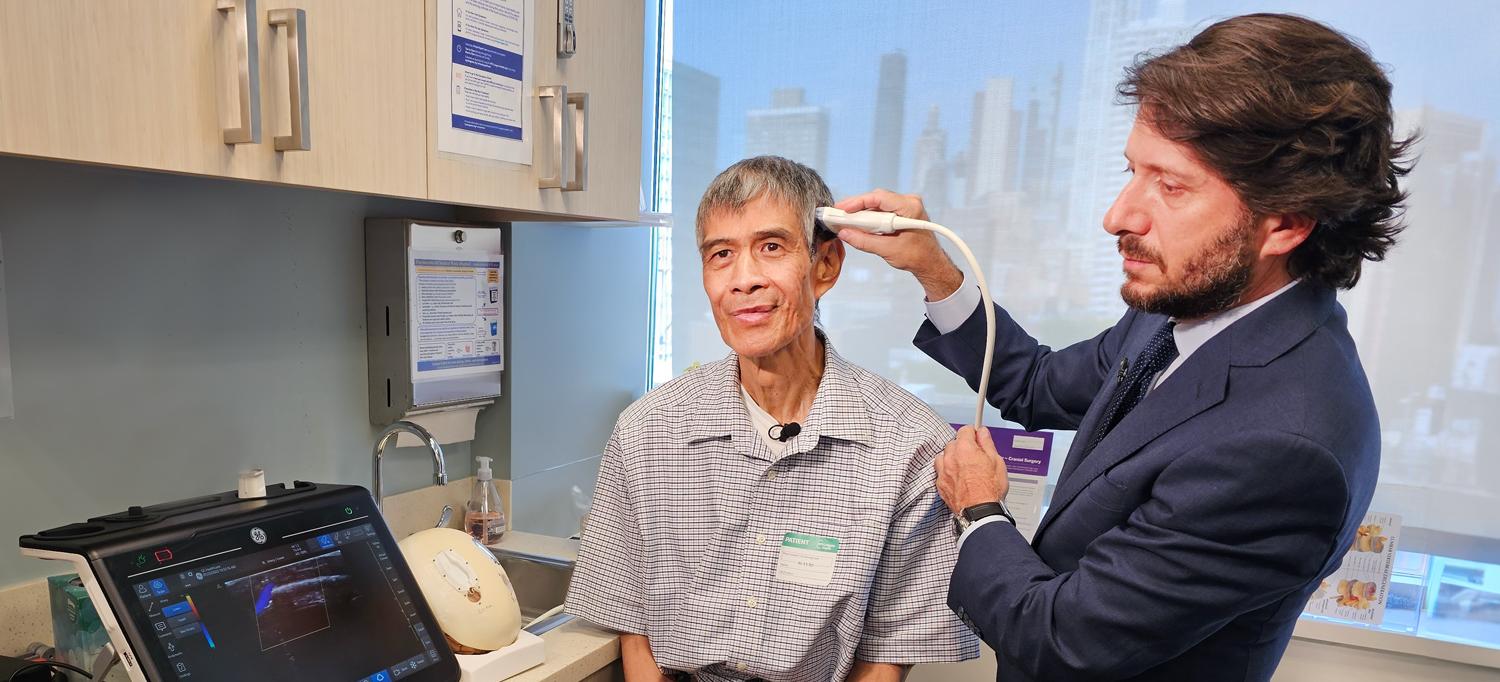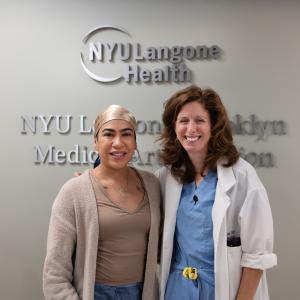
Stanley Wong is being evaluated after cranial bypass surgery by Dr. Erez Nossek, who is using ultrasound to assess blood flow. Ultrasound of the brain was not previously possible due to the skull, but a new sonolucent implant has opened a ‘window’ to the brain.
Photo: NYU Langone Staff
For Stanley Wong, 68, the first warning came on his walk to the store in Park Slope, Brooklyn.
“I was having trouble walking and had to sit down on a stoop to catch my breath,” said Wong, a retired postal worker, who was feeling unsteady on his feet. He woke a few nights later and was struggling to speak. He called his brother, who took him to the Ronald O. Perlman Center for Emergency Services at NYU Langone.
The care team diagnosed Wong with congestive heart failure, which also triggered neurologic concerns, including strokes indicative of a rare condition known as moyamoya syndrome. Experts in the Center for Stroke and Neurovascular Diseases determined that he needed cranial bypass surgery to augment blood flow (a procedure also known as revascularization) to parts of his brain.
To reduce Wong’s exposure to radiation as part of the surgery and enable a new view of brain vascularization, Erez Nossek, MD, director of the Cranial Bypass Program at NYU Langone, used a neurosurgical implant called the Longeviti ClearFit. The sonolucent plate covers the surgical entry point into the skull, which lets surgeons monitor blood flow through the bypass using ultrasound.
“The device creates a ‘window’ into the brain that can show us how the bypass is performing and eliminate the risk of stroke,” said Dr. Nossek, who was an early consultant in the development of the device in partnership with other neurosurgeons in New York City. “It provides a truly new look into the brain, reduces a patient’s need for more intensive imagery, and improves overall patient experience.”
Applying Augmented Reality to Neurosurgery
In another example of innovative tech used by NYU Langone neurosurgeons to further neurovascular care, neurosurgeon Osamah J. Choudhry, MD, helped develop an augmented reality imaging device known as Medivis to assist in precision and planning of neurosurgical procedures.
“Using an augmented reality headset, neurosurgeons can overlay imaging of the brain right onto the patient’s head and pinpoint in real time where to enter the brain and perform the procedure with precise accuracy,” said Dr. Choudhry, who is among an international team of researchers validating the device’s application and effectiveness. Medivis was approved by the U.S. Food and Drug Administration (FDA) for surgical planning in 2020, and it has been used in about 200 neurosurgeries so far.
Read and watch more from Fox 5 New York.
Dr. Nossek is on the medical advisory board of Longeviti and holds stock options in the company. Dr. Choudhry holds equity in Medivis.

